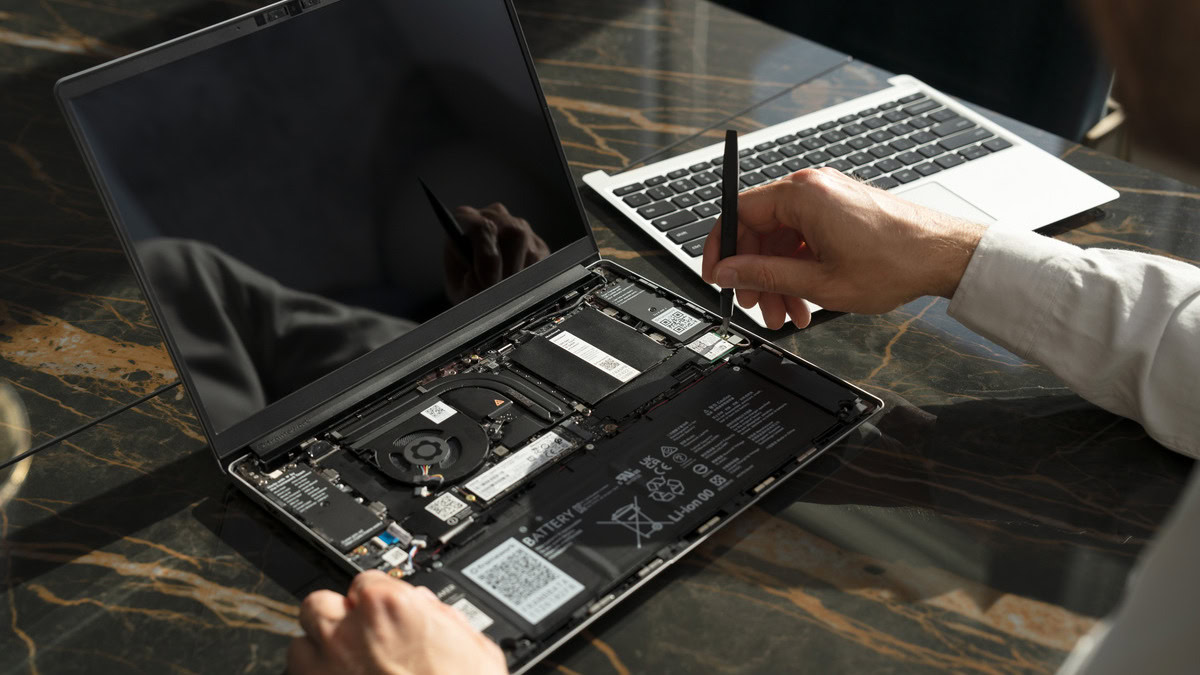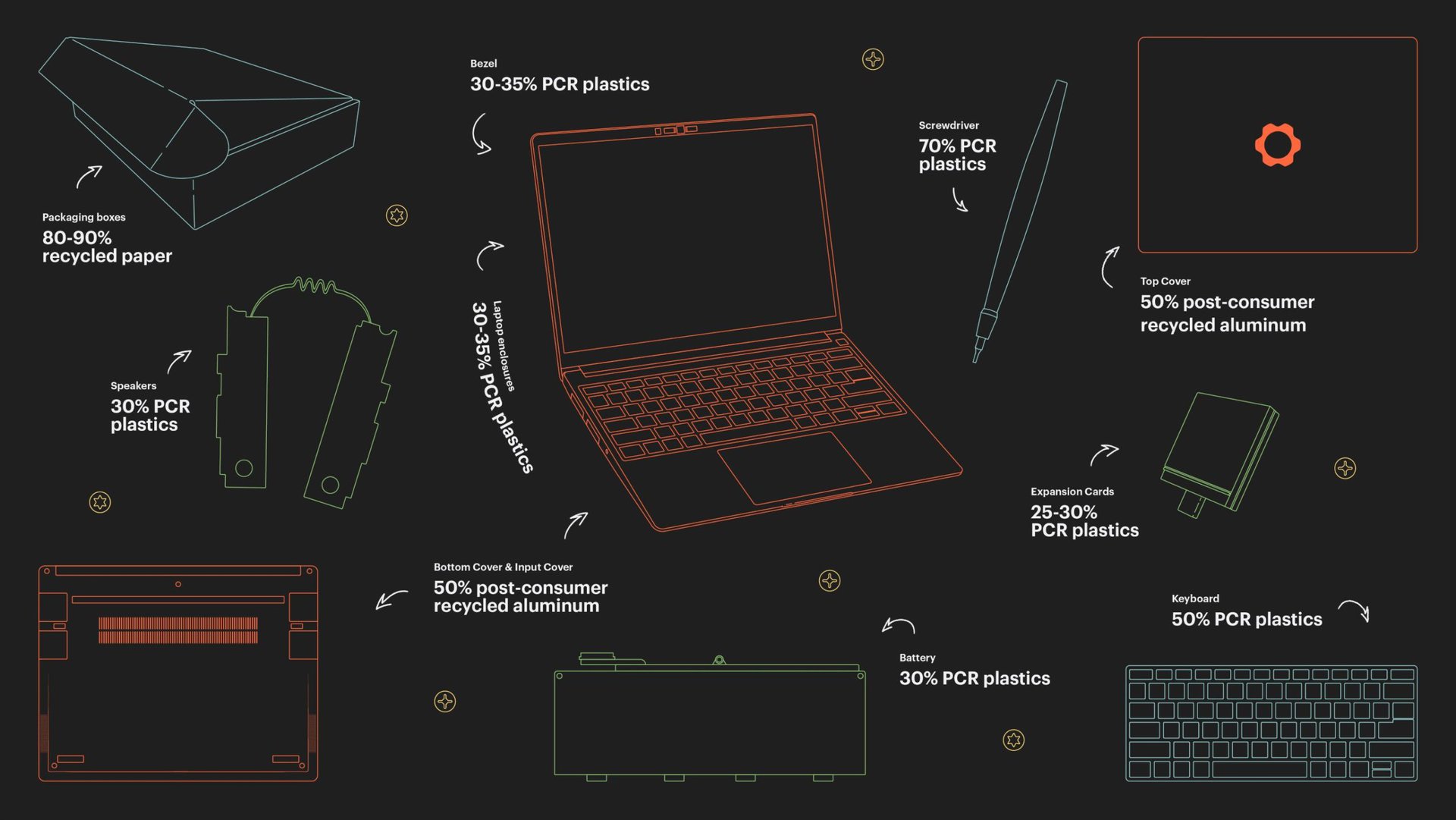Affiliate links on Android Authority may earn us a commission. Learn more.
Framework's modular Chromebook is the Chrome OS laptop of my dreams
September 21, 2022

Much to my continued disappointment, Chrome OS hardware hasn’t drastically evolved since the operating system’s early days. While we get yearly processor revisions and the odd spec bump or two, most Chromebooks still resemble thin clients — a computer designed around a singular task (web browsing) and not much else.
This was once a chicken and egg problem, where the software needed to mature before the hardware could. But now? There’s more reason than ever to enter the Chrome OS ecosystem, with support for software development via Linux, Android apps, and even PC gaming.
To be clear, I’m not saying that you can’t buy a powerful Chromebook. You absolutely can; just look at the HP Elite Dragonfly Chromebook for proof. It’s a premium ultra-portable that can be configured to fit an Intel i7 processor and 32GB of RAM. However, HP’s base configuration illustrates my point perfectly. For an eye-watering $1,149, all you get is an i3 processor, 8GB RAM, and 128GB of storage.
Cheaper Chromebooks with better specifications do exist, but only in select markets like the US and Canada. And even then, nothing has really stood out to me, for reasons I’ll explain later. That changes today, though, with the repair-focused hardware startup Framework announcing its first-ever Chrome OS laptop.
Thanks to Framework, you no longer have to pay a premium for top-tier hardware paired with Chrome OS.
If the Framework Laptop Chromebook Edition looks eerily similar to the company’s existing Windows lineup, that’s no coincidence. The two share many specs on paper, which likely makes manufacturing and repair simpler. What’s important is that you won’t pay a premium for Chrome OS. The $999 starting price for a 12th Gen Intel i5 processor is about on par with the Windows equivalent.

But I’m not just excited about specs or value here. I believe Framework’s latest release has real potential to disrupt the Chromebook market. To understand why, it’s worth taking a look at the status quo.
On modern Chromebooks like the HP Elite Dragonfly, for example, you can upgrade the storage if you can get past the Torx security screws, but you can’t swap out anything else. The situation is somehow even direr when you look at non-flagship Chromebooks from other brands.
Many affordable Chromebooks ship with not just non-upgradable RAM, but also soldered eMMC flash storage. Even if you’re willing to shell out nearly $1,000, you’ll be hard-pressed to find a Chrome OS device with 1TB or even 512GB of storage. That makes little sense — the same manufacturers already sell Windows laptops with that much storage, and often at a fraction of the cost.
Chromebooks with sensible memory and storage configurations are rare and virtually none are user-upgradable.
Now, I know that Framework’s higher memory and storage configurations will cost extra — the $999 base model includes 8GB of RAM and 256GB of storage. But at least you get the option to scale, which is something you can’t say about virtually any other Chromebook on the market. More importantly, though, you don’t have to pay for the upgrades upfront.
On more than one occasion, I’ve been forced to sell or recycle a perfectly functional Chromebook simply because it ran into RAM or memory bottlenecks after a few years. Even if you’re not a power user, it’s easy to fill up 8GB of RAM and 512GB of storage on a modern Chromebook. Android apps alone can take up a good chunk of those resources, as can Steam games and Linux apps.
With support for intensive tasks like software development and gaming, Chrome OS can now take advantage of powerful hardware.
Framework’s repair-focused design means that I can swap out parts myself when the time comes. Anyone can do it, in fact, since the company even includes the necessary screwdriver in the box.
And it’s not just internal components either. The ports on the Framework Laptop can all be swapped out — a big deal because very few Chromebooks on the market today have HDMI and Ethernet ports. I’ve grown frustrated with having nothing but USB-C and a solitary USB-A port. Framework’s modular approach means that I can even connect to a DisplayPort-only monitor without a dongle.

Does Framework’s modular laptop sacrifice portability in exchange for modular ports and upgradability? I don’t think so. Compared to my portable daily driver — a 13.5-inch Surface Laptop 4 — the Framework Laptop is only a touch heavier and thicker. In fact, given the small difference, I doubt I’d even notice it in the real world. The extra heft enables you to replace the keyboard, trackpad, and battery if and when they fail — no glue, no nonsense. It’s the exact opposite of the lackluster self-repair programs we’ve seen from Apple and others of late.
What do you think of the Framework Laptop Chromebook Edition?
At one point, I’d all but given up on buying Chromebook hardware — despite my love for Chrome OS itself. Save for a disruptive product or a Pixelbook reboot, which we now know isn’t coming, I had decided that my best course of action would be to install Chrome OS Flex on a regular Windows laptop. But with Framework’s modular Chromebook on the horizon now, perhaps it’s time for me to rethink that decision.
Thank you for being part of our community. Read our Comment Policy before posting.